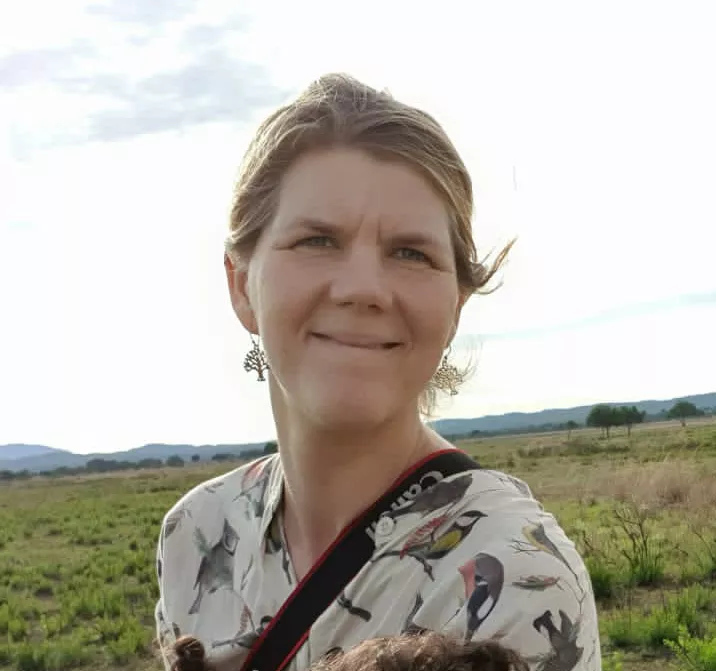Emma Johansson
Emma Johansson did her PhD between 2013 and 2018. Her thesis was about the phenomenon “land grabbing”, and how the environment and people are affected through agrobusinesses acquiring large tracts of land. At the beginning, the fieldwork for the thesis was planned in Sierra Leone, but after the Ebola outbreak in 2014, the plan had to be revised and changed.
The focus for fieldwork then became Tanzania and specifically to understand social-environmental changes related to land use change. Emma developed her own method to understand social-environmental changes over time through ‘participatory art’. With this method, local farmers, fishermen, and pastoralists created paintings together with her and a local artist to visualize changes and effects. The participatory method allowed both a historical and present understanding of the problems, as well as an idea about future aspirations of change.
After finishing her PhD, Emma continued with research and was financed for a one-year research project on land grabbing in Cambodia. Continuing in the academic field, she got a three-year postdoc position through the Swedish Research Council. The project is about using and developing participatory methods for creating future visions for sustainable development in Tanzania, through using participatory art.
Emma is currently employed at LUCSUS, at Lund university, and collaborating with Copenhagen University (IFRO) and Sokoine University of Agriculture in Tanzania. The international postdoc allows her to spend around a third of her time respectively at each place.
She says that she really had some valuable insights and experiences during her time as a PhD. Emma says that she sometimes felt like a ‘fraud’ and not knowing enough, which she learned is referred to as “imposter syndrome” and is common among researchers. During the PhD, she experienced that many people around her, both researchers and fellow student shared the same feelings. But, by talking about it with other people really helped her to ease her own worries.
She also learnt to become more flexible, both in terms of changing research plans, and to be adaptive and find possibilities in the insecurities around doing research.
Emma’s work and research currently focuses on the integration of art and sustainability science. To step out of the comfort zone and dare to use art in her research is something that she today looks back at with joy. Many people and researchers were skeptical of the non-conventional involvement of art, but she stood her ground. To go through and pursue her own ideas despite resistance is one of the main takeaways from that time and something that she urges others to do.
Further tips she would give to current or future PhD 'students is to find social gatherings and spaces to cooperate with other students and researchers. It can be very fun and beneficial and might give insights and different perspectives that is valuable for your own research. Furthermore, it is important to talk about difficulties and hardships with your peers. Doing research can feel lonely sometimes, and when feelings of insecurity can overwhelm you, it will help to talk to people in similar situations to get perspective. To engage in teaching, MSc thesis supervision, and presenting your research is further a tip. This helps you put perspective on what you know and are capable of.
ClimBEco offered a great space to establish and make social connections, she is very thankful for that opportunity and the community it offered.
